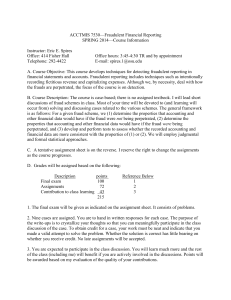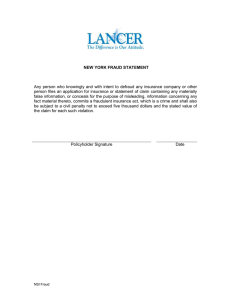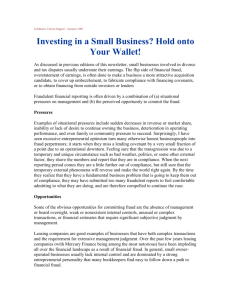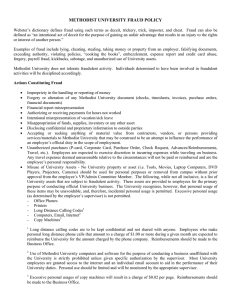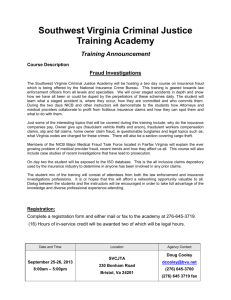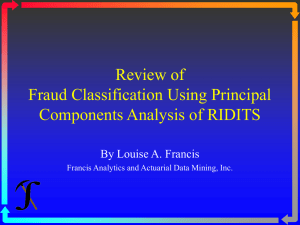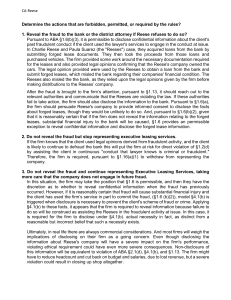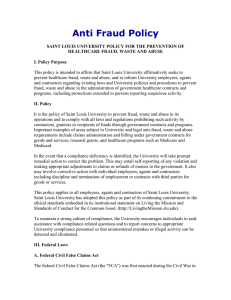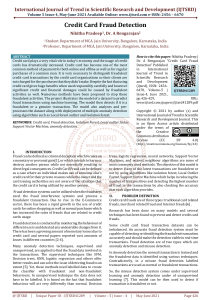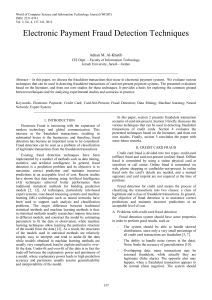ACCTMIS 7530—Fraudulent Financial Reporting SPRING 2015—Course Information Instructor: Eric E. Spires
advertisement
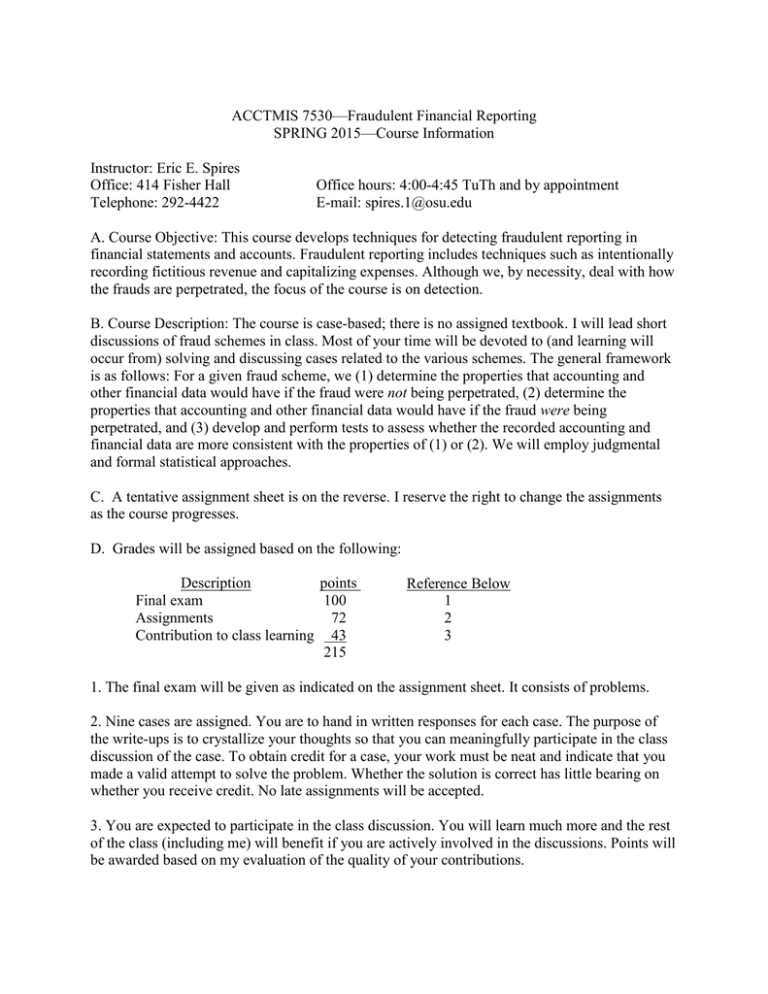
ACCTMIS 7530—Fraudulent Financial Reporting SPRING 2015—Course Information Instructor: Eric E. Spires Office: 414 Fisher Hall Telephone: 292-4422 Office hours: 4:00-4:45 TuTh and by appointment E-mail: spires.1@osu.edu A. Course Objective: This course develops techniques for detecting fraudulent reporting in financial statements and accounts. Fraudulent reporting includes techniques such as intentionally recording fictitious revenue and capitalizing expenses. Although we, by necessity, deal with how the frauds are perpetrated, the focus of the course is on detection. B. Course Description: The course is case-based; there is no assigned textbook. I will lead short discussions of fraud schemes in class. Most of your time will be devoted to (and learning will occur from) solving and discussing cases related to the various schemes. The general framework is as follows: For a given fraud scheme, we (1) determine the properties that accounting and other financial data would have if the fraud were not being perpetrated, (2) determine the properties that accounting and other financial data would have if the fraud were being perpetrated, and (3) develop and perform tests to assess whether the recorded accounting and financial data are more consistent with the properties of (1) or (2). We will employ judgmental and formal statistical approaches. C. A tentative assignment sheet is on the reverse. I reserve the right to change the assignments as the course progresses. D. Grades will be assigned based on the following: Description points Final exam 100 Assignments 72 Contribution to class learning 43 215 Reference Below 1 2 3 1. The final exam will be given as indicated on the assignment sheet. It consists of problems. 2. Nine cases are assigned. You are to hand in written responses for each case. The purpose of the write-ups is to crystallize your thoughts so that you can meaningfully participate in the class discussion of the case. To obtain credit for a case, your work must be neat and indicate that you made a valid attempt to solve the problem. Whether the solution is correct has little bearing on whether you receive credit. No late assignments will be accepted. 3. You are expected to participate in the class discussion. You will learn much more and the rest of the class (including me) will benefit if you are actively involved in the discussions. Points will be awarded based on my evaluation of the quality of your contributions.
